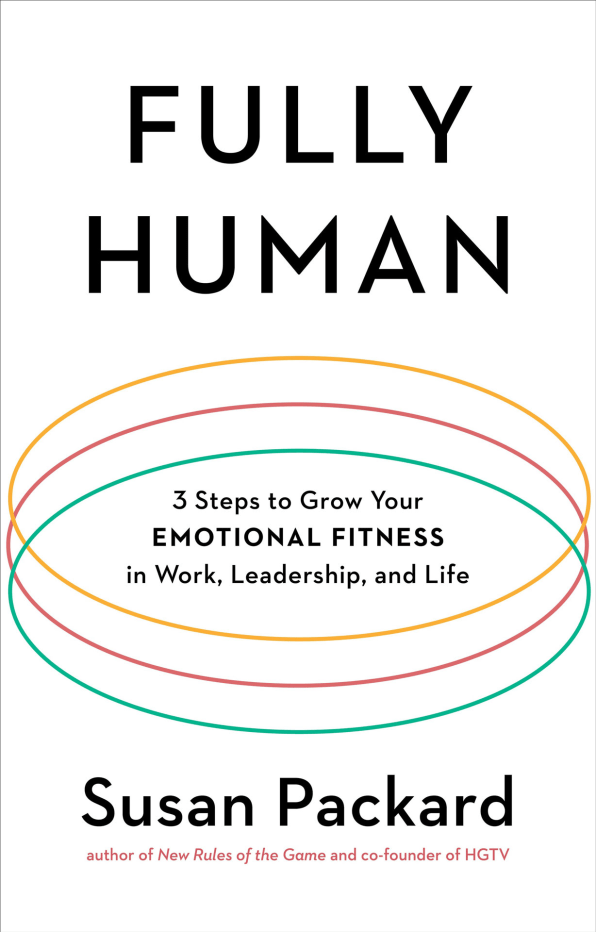#CareerAdvice : #PregnantJobSearch – Here’s What Happened When I Interviewed for a New Job while Heavily Pregnant. Great Read!
I don’t know how else to start this story except with the punchline: I started interviewing for a senior position at an ad agency while six and a half months pregnant.
I got a job offer at eight months and received a formal contract two weeks after giving birth to my second daughter. I didn’t start my new, big, full-time gig until I’d enjoyed five months off with my delicious baby girl.
I do not share this to boast. I share it because every woman who’s found this out has looked at me, wide-eyed, asked to hear every detail, and then implored me to tell every woman I know.
Because it’s a sadly uncommon tale, right?
Our societal norm looks more like this: a professional woman finds out she’s pregnant and stays in her current position whether she likes it or not. She stays because of maternity leave and health care. Because she fears rejection. Because she feels ill and exhausted and can’t deal.
For many reasons, women’s professional mobility can be largely limited during pregnancy. Pregnancy alone is 10 months, and combine that with any amount of time trying to get pregnant plus the postpartum period, and suddenly two years go by. Given that the average 25 to 34-year-old female stays with a job for only 2.8 years, this period of time with limited job movement is significant. And that’s just for one child.
I did not consciously decide to fight against this current. What initially happened to me was in line with the standard tale. I found myself at three months pregnant ready to make a professional move but realized my timing was lousy. Impossible even. I’d loved my latest experience and coworkers, but felt I’d grown as much as I could within my role and the company at large. I was ready to start looking for my next challenge. But job searching takes time, and I’d be lucky to find an opportunity by the time I was six months pregnant, and who would hire me then?
Like many pregnant women, I internally shrugged my shoulders and accepted my fate. I would stay put, I told myself. Use this time to figure out my next move, take my maternity leave, and start interviewing when I became hirable again (i.e. after the baby was born).
But impatience nagged at me. I started responding to recruiter messages, just out of curiosity. Or so I told myself. These calls often went well, but when I eventually shared that I was pregnant–because I’m honest like that–the script cut to a quick and common finale. “Oh, congrats! You’re like the third woman I’ve spoken with this month who’s pregnant. There must be something in the air. Okay, let’s talk after the baby is born.”
These recruiters were other women. And I wasn’t even offended at the time. All it did was reinforce my own assumption that I was indeed stuck for now. I once again shrugged my shoulders and told myself that it was all for the best. It’d force me to relax, take my time and make a really thoughtful decision about my next move.
As part of this exploration, I reached out to past colleagues I’d always liked and admired, and asked them to reconnect over coffee. After one such meeting, with a man I used to work with but hadn’t connected with in over a decade, I became particularly interested and excited. He was now president of Heat, an ad agency, and I found myself thinking the agency was potentially the fit I’d been looking for. I could tell he was interested in my experience as well. We parted ways by agreeing to reconnect after the baby was born when I was ready to make a move.
Like this Article ? Share It ! You now can easily enjoy/follow/share Today our Award Winning Articles/Blogs with Now Over 2.5 Million Growing Participates Worldwide in our various Social Media formats below:
FSC LinkedIn Network: www.linkedin.com/in/fscnetwork
Facebook: http://www.facebook.com/pages/First-Sun-Consulting-LLC-Outplacement-Services/213542315355343?sk=wall
Google+: https://plus.google.com/115673713231115398101/posts?hl=en
Twitter: Follow us @ firstsunllc
Question: Want the ‘the best/current articles/blogs on the web’ on Job Search, Resume, Advancing/Changing your Career, or simply Managing People?
Answer: Simply go to our FSC Career Blog below & type(#career, #leadership, #life) in Blog Search: https://www.firstsun.com/fsc-career-blog/
What Skill Sets do You have to be ‘Sharpened’ ?
Continue of article:
In all fairness to him, I had learned to open any and all networking coffees by pointing to the obvious baby bump in my belly and clarifying that I was just using this time to explore my next step. Of course, I wasn’t looking to make a move right now. I certainly contributed to setting my own limitations, but no one I met with encouraged me to consider otherwise.
After this fruitful networking coffee, I came home and excitedly told my husband about it. But I soon found myself expressing disappointment that I couldn’t just jump at the opportunity now. I tried to shrug my shoulders yet again, but my disappointment quickly shifted into annoyance. This sucks. My husband wouldn’t have to wait for months to pursue an opportunity because we’re having a baby. Why should I?
It’s at this moment my story takes an uncommon turn.
Instead of quieting that voice, I decided to challenge the status quo for acceptable pregnant lady behavior. I did something the next day that everyone in my life thought was crazy, including me. I reached back out to the man I’d had coffee with to say, “I’m actually ready to talk seriously now if you are.”
This was a scary thing to do. It opened me up to being judged or rejected by someone whom I wanted to maintain a good rapport. Exhibiting professional ambition while also being thrilled to have a child on the way can be a really delicate tightrope for women to walk. Pregnancy is a giant visual reminder of the dichotomy between work and family, stamped across a woman’s body. I knew full well that I wasn’t as desirable as a candidate at that moment as I’d typically be. I was terrified to send that email.
The moment I pressed send, I knew I’d feel better about the outcome than if I’d just kept quiet, no matter what his response was. If he said, “Awesome, let’s have you meet some people,” I’d feel confident pursuing the opportunity completely as myself, baby and all. If he said, “Nah, we’re not interested in talking to you until this baby thing is over and done with,” I’d learn upfront they weren’t likely people I’d want to work with as a new mom anyway.
His response was immediate and positive. He set me up to interview with my current boss at Heat, with whom I had another interesting and exciting conversation. He then moved me forward to meet with more people, all of whom didn’t blink that I was pregnant. It was amazing.
This isn’t to say it was a breeze interviewing while six, seven, and eight months pregnant. I felt exposed and insecure in such a maternal state. My interview shtick had a look to it, and that absolutely did not include a giant basketball in my stomach or waddling into conference rooms. Pregnancy didn’t allow me to don my typical armor, one that most of us wear in some form or another.
Again though, what initially felt terrifyingly vulnerable took a positive turn. It was the first time I’d ever come from a place of, “Take me or leave me as I am,” in a professional setting. There was no hiding the fact that I’d come with some baggage. That I’d have other priorities outside of work. That they’d be hiring a mom of little ones and all the inconveniences that can bring.
It ended up being the most empowering experience of my professional life to date. Interviewing while pregnant challenged me to lower my guard and be fully myself from Day One. As a woman in advertising, I had learned to brand myself according to what’s appealing to my industry–as most women in most industries do. Motherhood is definitely not included in that picture. Not having had any working moms to look to as examples in my early career was part of what drove me away from the industry. Most of the ad-women I worked with left after having children because they too felt they didn’t have a place in it, for a multitude of reasons. If I was going to come back to an agency after years of applying my skills elsewhere, doing so while enormously pregnant seemed almost absurd. It forced me to put forward the very thing I was most insecure about in this field: my femininity.
Funny how life works sometimes.
At eight months pregnant, after a process that was nothing but positive, I received a formal job offer for a position I hadn’t dreamed of pursuing months prior.
What about maternity leave? Given my unique timing and the fact that I didn’t receive a contract and negotiate final details until after my baby was born, I couldn’t take advantage of my new employer’s maternity leave. Instead, I took the three and a half months of maternity leave I received from my former employer and the state of California.
My new employer initially hoped I’d start after three months off with the baby, but I told them I’d be a better employee if I could start after five months. They supported this request. And the six weeks of unpaid leave I was planning to take all along was essentially paid for with the salary increase I received.
I realize I was very fortunate. Not every woman has any maternity leave to begin with, nor is every new employer so inclined to be flexible with family leave time. However, I believe this is all the more reason for women to be their own best advocates during this time of life.
What about starting a new job with a new baby? I won’t lie: it wasn’t easy. It brought up a whole new set of vulnerabilities. I can see why some women choose to stick with something comfortable and known during that phase of life. Most of my new co-workers didn’t know I had a tiny baby and a four-year-old at home, and it’s not exactly something you bring up in early conversations. Because they also didn’t yet know me or my work, I worried about coming off as less sharp than I’d normally be.
Between having to pump twice a day, kids getting sick, me getting sick, and juggling the life logistics of a dual-working home in a big city with little children whom I insist upon seeing every morning and night when not traveling, I literally couldn’t give 100% of myself to the new gig. Nine months into the job, I still can’t. But again, this forced me to be true to myself and my life values more than I’d ever been at work before. I had to establish stronger boundaries around my time and was then able to learn that my work and reputation didn’t suffer by doing so.
I also felt an immediate sense of respect and loyalty to my new organization. It says a lot about an organization and its leadership when they extend a senior position to a woman at that late stage of pregnancy and then happily wait a half year for her to start. This illustrated a level of value for women and moms and was a great indication of Heat’s culture and values. Not surprisingly, this agency is the best organization I’ve ever worked for when it comes to caring for its employees and actively pursuing excellence in diversity and inclusion in the workplace.
For anyone inspired by my fortunate tale, I’ll end this story with a bit of advice as anyone who experiences good luck suddenly feels qualified to do.
Companies, consider the motivation, loyalty, and progress you can cultivate by pursuing women who are pregnant. Be open to working with them to get creative about maternity leave options, signing bonuses, access to health care or other workarounds. I know this is particularly challenging for small businesses or smaller teams, but hiring the right person is also valuable in the long run.
Recruiters, don’t assume pregnancy is a pause button for women or companies. You could be hurting both parties by doing so. If women say they aren’t interested in making a move because of pregnancy, politely ask if that’s actually true or if they’re just assuming the company won’t want them. Be a champion for your female clients during this phase of their lives.
Women, dare to actively pursue professional growth while pregnant. If you feel the pull to do so, that is. We can work to unstick ourselves. You never know what kinds of opportunities might arise, and how you might be able to make them fit within your pregnancy, maternity leave, and future family lives.
Author: At work, Jen Watts Welsh is a Group Strategy Director with Heat. At home, she is the head of strategy for two tiny girl bosses. At play, she avoids all things strategic and can be found in child’s pose or drinking strong coffee.
FastCompany.com | February 19, 2019








